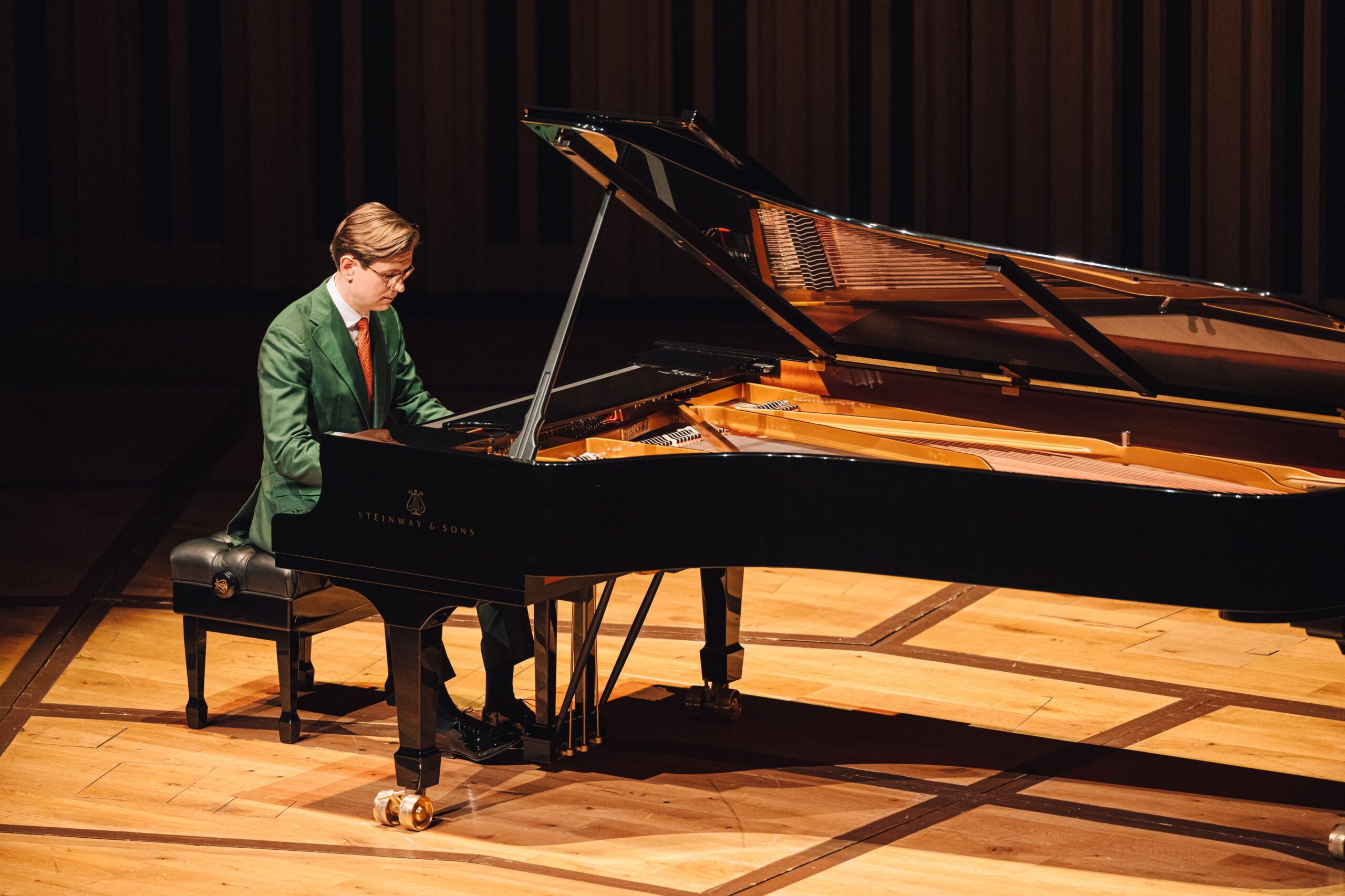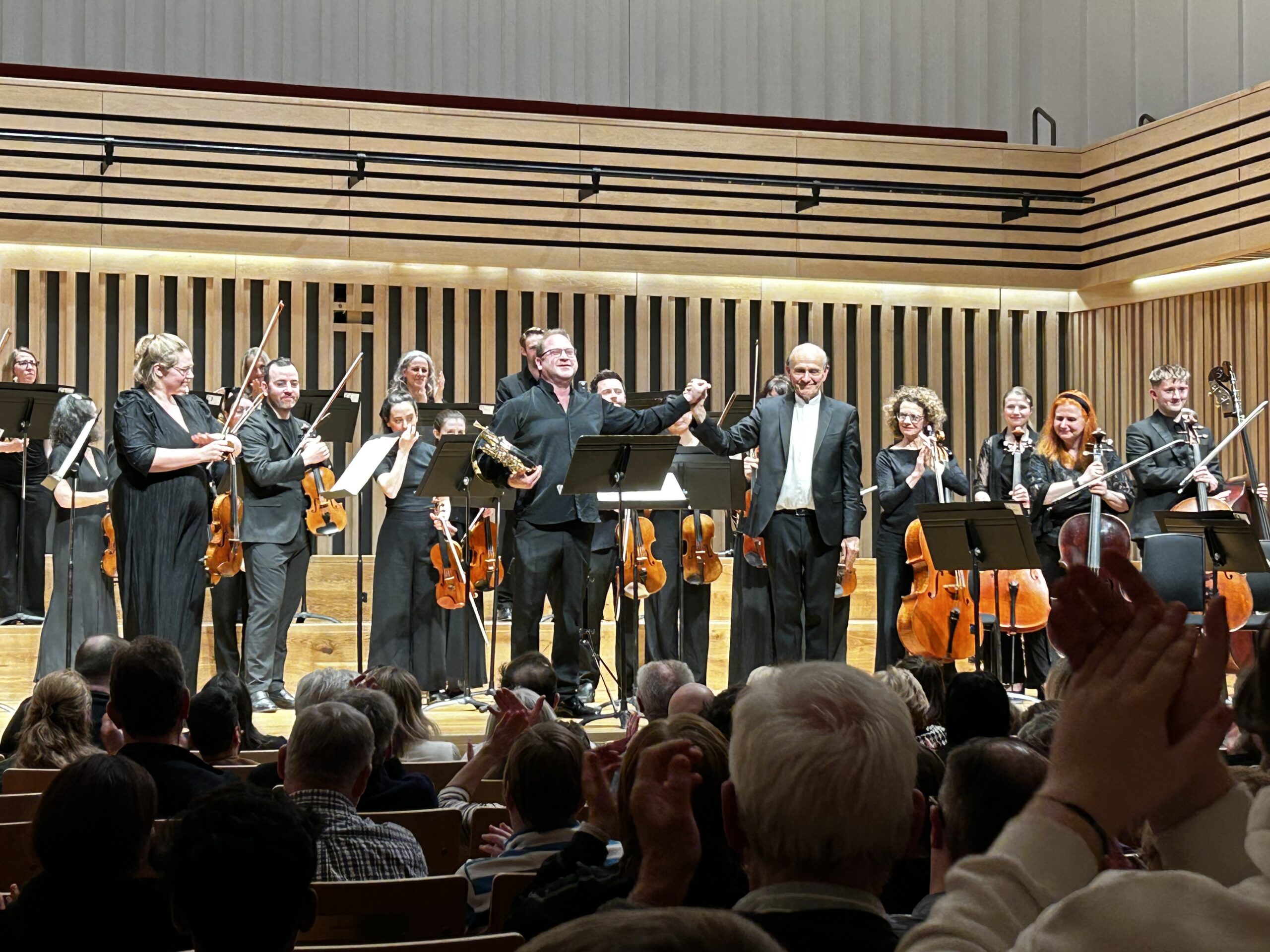From grand orchestral statements to intimate chamber concerts, the 2025 Edinburgh International Festival offers a rich tapestry of music, drama, and dance—making August a month to set aside in the calendar.
Announced earlier this week, Edinburgh International Festival’s programme offers a characteristic mix of music, drama, dance and spoken word events, making the prospect of August amongst Scotland’s cultural throng something to ringfence in the calendar.
If you’re wanting some of the UK’s finest and the opportunity to hear some of what international audiences hear, Edinburgh remains this year an ever reliable destination. Amongst the orchestras making the pilgrimage to Scotland, there are concerts from the Melbourne Symphony, the US National Youth Orchestra, and Budapest Festival Orchestra, in addition to the UK’s Scottish Chamber Orchestra, Aurora, London Philharmonic and London Symphony. Programmes combine well-loved classics with the new and unfamiliar in a satisfying and rewarding mix for anyone with a sense of curiosity. Shostakovich 5 and 10, Beethoven 5, Mozart’s La Clemenza Di Tito will all surely delight, so too Mussorgsky’s Pictures,and Vaughan Williams’ A Sea Symphony. There are musical premieres from China and Australia, along with Bernstein’s Chichester Psalms. Fans of Mendelssohn’s Elijah will be pleased to see it programmed too.
Opening the festival in concert is Tavener’s epic 8 hour choral prayer – The Veil Of the temple. Edinburgh Festival Chorus join forces with National Youth Choir of Scotland and NYCOS Chamber Choir, the Monteverdi Choir and the Royal Scottish National Orchestra in a collective moment of faith and spirituality that is as bold in its programming as it is needed. The eight cycle work has short intervals in between each, and audience members are free to come and go as they please. There will also be bean bags for those that want them.
The Orchestra of the Age of Enlightenment’s collaboration with Kim Brandstrup will undoubtedly make the purists wriggle uncomfortably in its bristling combination of Bach, dance and hip-hop. The convention-busting event entitled Breaking Bach shamelessly appropriates possibly the finest drama ever made (maybe The Sopranos beats Breaking Bad) upholding the EIF values at the same time as offering some fresh and intriguing. Nothing OAE do is half-hearted. They are innovation done without fuss, bother or hype. This will be a joyous affair.

Attention inevitably focuses on the big ensembles travelling the big distances performing the large works, but it’s EIF’s chamber music series where the Festival’s heart beats loudest. The near daily 11am concerts in Queen’s Hall succeed in feeling like an occasion with a charming relaxed vibe. If the weather allows, audience members spill onto the street bustling with Fringe performers purposefully heading to the Royal Mile, whilst the rest of us quietly look on coffees in hand discussing what we’ve heard in the first half. With the audience sat in a horseshoe seating plan, you’re as close to the performers as you can probably get without being on stage yourself. This proximity combined with warm feeling that a wrap around audience promotes makes this the most focussed listening of the Festival, rewarding the curious and open-minded listener with a whole range of repertoire they may not have actively sought out other. Such is the power of a festival vibe.
Some of the highlights include Kolesnikov and Tsoy’s lovingly crafted programme of Bach, Busoni and Messiaen, rock star clarinettist (and much-loved and admired human and composer) Mark Simpson and Richard Utterly with BOTH Brahms sonatas, and Gavin Higgins riveting Three Broken Love Songs, plus a mixed concert of music featuring the captivating counter tenor Hughe Cutting with pianist George Ireland. The Sitkovetsky Trio get their moment in the sun after years of committed trio work on the circuit, and their Verbier Festival peer Leonidas Kavakos appears with the Apollon Ensemble in a concert of Bach Violin Concertos.
Beyond music, the National Theatre of Scotland’s premiere of James Graham’s Make It Happen – the story of the financial crisis told from the perspective of ‘the biggest bank in the world – the Royal Bank of Scotland’ sees Brian Cox (well known for his chilling role in Succession) return to the stage that is arguably the starting point for the dizzying array of political upending that followed and the present malaise the world finds itself in now.



